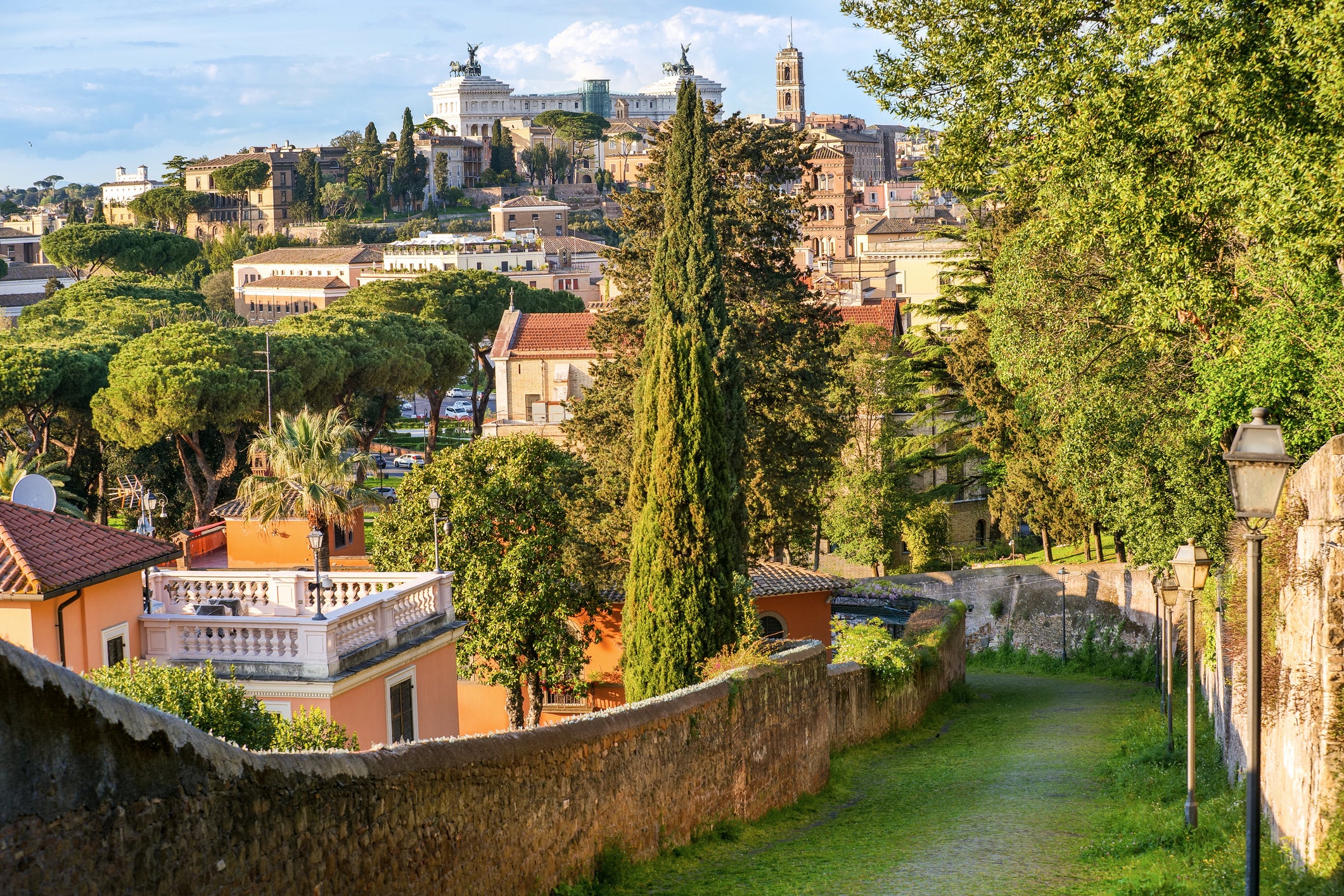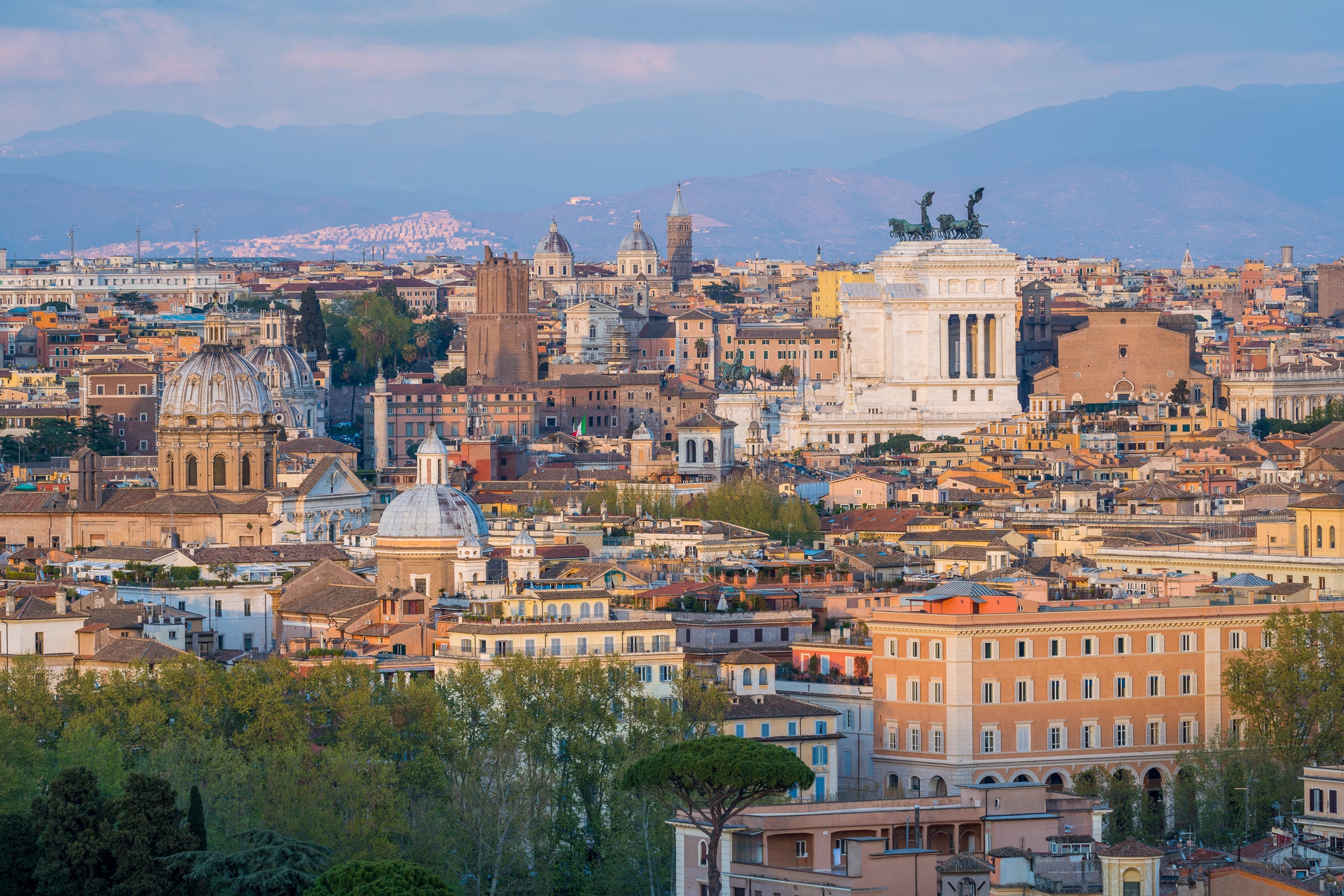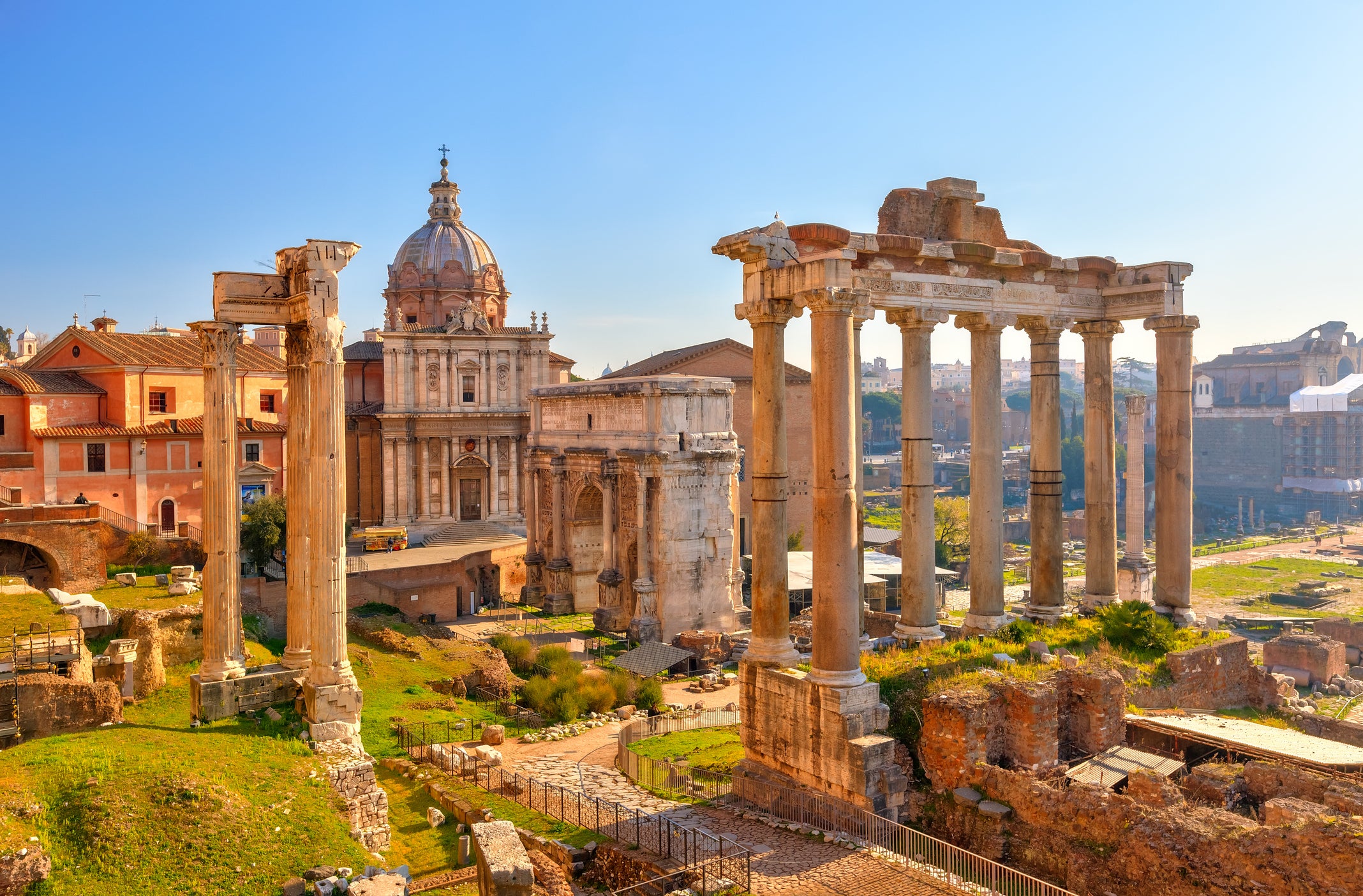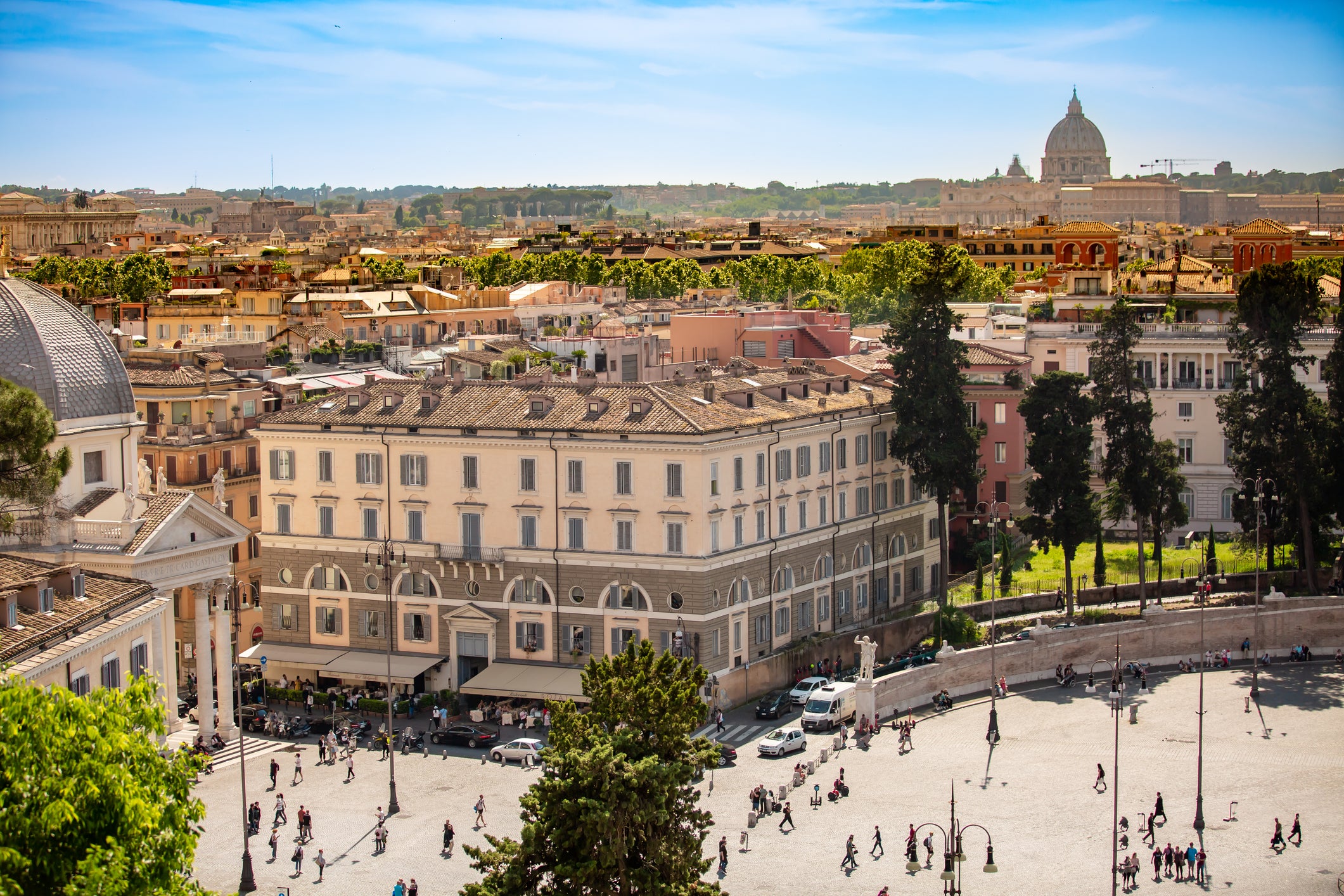
The trouble with Rome is that it has so many treasures. Its heady mix of must-see classical ruins, flamboyant fountains, Renaissance palaces and masterpiece-filled museums can make a trip to the Eternal City as exhausting as it is exhilarating – and that’s before you’ve even set an aching foot in a designer store or strolled along a cobbled street in search of a(nother) delicious scoop of gelato.
So, it’s a good thing that there’s another ‘must’ in Rome, and that’s to experience il dolce fa niente – the sweet doing of nothing. And there’s no better way to idle away the time than by enjoying a glorious view, perched high above the chaos of the capital’s traffic.
There are plenty of vantage points – well, the ancient centre was founded on seven hills and has since spread over several more – but these are five of the best.
Of course, if you prefer a view that’s literally breathtaking, you can always climb all 551 steps to the dome of St Peter’s. Cameras at the ready…
Read more: The best hotels in Rome for location and value for money
Aventine Hill

Rising above the Circus Maximus, the ancient city’s venue for chariot races, the Aventine is the most southerly of Rome’s seven hills. Originally a plebian area, it later became home to the aristocracy who built pagan temples and lavish palaces, and is still a desirable, delightfully tranquil, residential district.
It’s worth the climb just to visit the church of Santa Sabina, which was built in the 5th century. Zoom in on the carved cedarwood panels on its main door, which depict scenes from the Old and New Testaments, then step into the scented shade of the neighbouring Giardino degli Aranci, the Garden of Oranges, and enjoy the panorama of the Roman skyline.
But don’t go yet; walk the short distance to the Piazza dei Cavalieri di Malta, designed by Piranesi for the chivalric order of the Knights of Malta, then peep through the keyhole of the Priory door; you’ll see the distant dome of St Peter’s, perfectly framed by foliage.
Read more: Beyond the Trevi Fountain: An ancient roman’s guide to secret Rome
Belvedere del Gianicolo

The Gianicolo (or Janiculum Hill) is the place where locals come to watch the sunset. Although it wasn’t one of the original seven hills, as it sits on the other side of the Tiber outside the boundaries of the ancient city, it’s higher than the others and makes a wonderful vantage point. Rising above the maze of narrow streets and pretty squares that characterise Trastevere, traditionally Rome’s artisan quarter, it was named for the two-faced god Janus who was once worshipped here.
Today it’s topped with an equestrian statue of Giuseppe Garibaldi, hero of the Risorgimento – the revolution that led to Italy’s unification. Follow Via Garibaldi to get up to the terrace, stopping on the way up to see Vasari’s works in the church of San Pietro in Montorio, then relax and enjoy the drama as the sun sinks over the city.
Piazza di Campidoglio

This majestic Renaissance piazza, designed by Michelangelo, is celebrated for its elegant proportions and is home to the Capitoline Museums with their stunning collections of art and sculpture.
However, it’s the path to the back of the piazza (head behind the statue of Marcus Aurelius) that will have you drawing breath; it offers an unforgettable outlook onto the Foro Romano, the Roman Forum, which was the religious, political and commercial heart of Republican Rome. You’ll see the columns of the Temple of Saturn, which once housed the state treasury, and the distant walls of the Colosseum. The Campidoglio, or Capitoline Hill, may have been the smallest of the seven hills but it was the power hub of the ancient world.
Read more: How to do Rome as a family: From what to do to where to stay
Pincio Terrace

Rome isn’t well served with parks; if you’re feeling the need to escape to a green space then the chances are that you’ll make for the Villa Borghese, where the grounds offer winding paths, lakes and pretty flowerbeds.
While there, make for the formal Pincio Gardens, where a terrace offers a splendid view of Piazza del Popolo, with the dome of St Peter’s beyond. The People’s Square (as it translates today) is perhaps Rome’s most impressive (it’s actually oval) and has at its centre an Egyptian obelisk taken from Heliopolis by Augustus for the Circus Maximus – where it served as a turning point in chariot races.
The Vittoriano

Many say that the outlook from the Vittorio Emanuele Monument, or Vittoriano, is the best of all – as it’s the one place you can’t see the monument itself. This vast white edifice, which dominates Piazza Venezia, was erected at the end of the 19th century in honour of the first king of a unified Italy and has been disparagingly nicknamed ‘the typewriter’ by locals. It costs €15 to take the lift to its panoramic terrace, but you’re well rewarded with an outstanding 360-degree view of the city and the hills beyond.
Read more: This is the Rome neighbourhood where the locals come to eat







